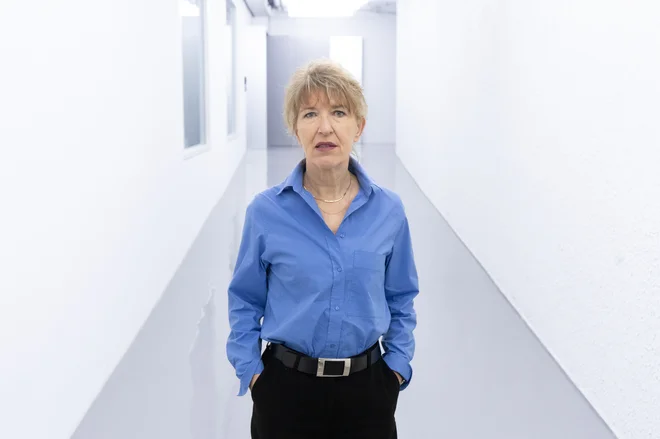The absence of security detention upsets the civil parties – Liberation

« What a disappointment ! » The verdict against Joël Le Scouarnec, sentenced this Wednesday, May 28 in Vannes to the maximum penalty provided for by the law of 20 years’ imprisonmentincluding two thirds of security period, for rapes and sexual assault on 299 victims, was welcomed in tears and anger.
Admittedly, the Morbihan criminal court followed Advocate General’s requisitions on the imprisonment duration. But The 74-year-old ex-surgeon escapes the detention of security, an additional penalty requested by the prosecution, making it possible to place in a medico-social center a criminal presenting a high risk of recurrence when he left prison. Manon Lemoine, raped at the age of 11 by the former doctor, knows that this rare and controversial measure is planned « Only for an exceptional character ». « But is this affair not enough ? 299 (victims, editor’s note) ! The law against sexual violence in France has not been thought in good sense ”she thundered.
The magistrates estimated that Joël Le Scouarnec had « »held to assume its actions»»during the hearing, explained the president, Aude Bubési, at the statement of the verdict. « Which, regardless of the utilitarian side of this approach (…) attests to its desire to repair the consequences of its actions. » The court also took into account the age it would have « At the end of the execution of his sentence of 20 years in criminal prison accompanied by a two -thirds security period ».
« If the risk of recurrence exists in Joël Le Scouarnec and has been taken into account in the pronouncement of all the penalties, this element is not enough to justify the pronouncement of the principle of a security retention which must maintain an exceptional character », Complete the judge. And to conclude: « In order not to pronounce a security retention, the Court therefore took into account (…) of the intention of the legislator who considered that the violations of sexual matters with regard to a plurality of victims even minor could not be punished beyond 20 years of criminal imprisonment. «
« In the room, it was the stupor that welcomed this verdict »says Solène Podevin-Favre, co-director of the independent commission on incest and sexual violence against children (ciivise).
Amélie Lévêque, victim of Joël Le Scouarnec, says how much she feels « Humiliated by this verdict. » “We are 300 victims. Why not go to the end, pronounce security retention ? How many victims are needed, a thousand ? « denounces the forties. And question: « How to think that his apologies were not just a defense strategy ? «
« Obviously we are disappointed »reacted Me Myriam Guedj Benayoun, lawyer for civil parties, about the lack of security detention. For her, the conditions were met, « By the duration of the actions of Joël Le Scouarnec, more than thirty years, by the nature of the crimes he has committed and by the unanimous opinion of psychiatrists and psychologists who all say that the risk of recurrence is extremely important ».
For the lawyer for the association L’Enfant Bleu, Me Christophe Boyer, the case of Joël Le Scouarnec is a matter of « The unthought of politics »taking up an expression used by the president of the court. « We could not ask the court to go beyond what the law allows, 20 years is 20 years, and the detention of safety, it is not made for this kind of situation »he continued, before concluding: « It is not a dressing on a wooden leg (to) compensate for the fact that the maximum is reached with 20 years. »
Me Cécile de Oliveira, another lawyer for civil parties, judged this verdict « Adapted in a very fine way to the psychiatric situation of Joël Le Scouarnec »qualifying of « Relevant » The decision of the criminal court of« Discarding security retention, which must remain a completely exceptional sentence ». « All this appears complete, consistent, precise and extremely suitable »she said
By way of a press release, the CIIVISE has soberly declared « Take note » of the decision of the criminal court, while stressing, « Whether the trial was a considerable test for the victims and their loved ones, recognized or not by justice. »








